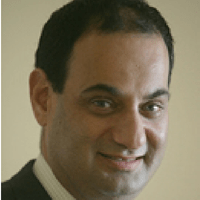In that budget, largesse was the name of the game. It preceded the global financial crisis, times were seemingly good, and a government struggling in the opinion polls believed a generous superannuation package would help shore up its support.
In the event, Costello and his prime minister, John Howard, got it wrong. People said thanks for the super package, and then voted Labor into power at the November 2007 election.
A decade later, Morrison, desperate to claw back some super concessions that contribute to a growing budget deficit, as well as (hopefully) show some gumption on policy, decided to trim back the superannuation concessions in a move that has certainly caused a degree of angst with the blue rinse set but is unlikely to be raising too many eyebrows elsewhere.
It’s not surprising the well-heeled who are aged 50-plus are up in arms; Morrison did take a rather sharp scalpel to their super benefits, with the following four causing the most grief:
• Reducing annual concessional contribution caps to $25,000 (previously $35,000 for those over 50 and $30,000 for those under 50);
• Lifetime non-concessional contribution cap of $500,000. This has probably generated more anger than any other measure;
• Limit on pension phase balances of $1.6 million per person. Considering most SMSFs are couples, this is effectively $3.2 million;
• Removal of earnings tax exemptions for transition to retirement income streams.
There were some positives, such as allowing everyone to keep making contributions to super up to age 75, but they were lost in the noise around the negatives, with the election back-drop providing opponents of the changes with the perfect soap box.
As with all changes to superannuation, there is one certainty: the system will be more complex. And with complexity will come the need for trustees to get specialist advice, and not only those who have always used an adviser. Inevitably, some trustees who were confident about managing their SMSF will seek professional advice, such are the potential ramifications of these changes.
Under the old regime, superannuation was an easy option. But now there will be the need to do more planning before and after retirement as it will be more difficult to put money into super. And I suspect advisers are now spending sleepless nights working out how to advise their clients either transitioning to retirement or in retirement now.
There are some obvious strategies, such as taking full advantage of the concessional contributions this and next financial year, but expect to see an array of strategies emerge over the coming months as advisers devise what is the best option for each individual client.
No doubt advisers will ask pre-retiree clients just how much post-tax earnings they have contributed to superannuation since 2007. The bad news is that any contributions post-2007 are included in the new $500,000 lifetime post-tax limit. The (relatively) good news is the abolition of annual limits, making redundant the need for strict record keeping.
Advisers will be telling their clients that the future retirement savings strategies will be that more effective if done jointly, particularly pertinent for SMSFs where the majority of funds have two trustees: husband and wife. By working together, they will be able to bypass the $1.6 million pension transfer limit, so a focus has to be on ensuring a couple’s super balances are evenly balanced. Divorce, it seems, is going to come at a higher financial price.
Other options that are certain to get an airing are family trusts, investment bonds, and the potential asset mix between pension and accumulation accounts. As I said, there is much to entertain an SMSF specialist’s mind – and the above list of issues is far from exhaustive.
I have long held the view that skilled advisers will increasingly come to the fore as clients appreciate the complexity of all issues related to SMSFs and require sound advice. And the 2016 budget, and all the changes it entailed, simply reinforced my view.
All politicians talk about the need to simplify the system, whether it’s tax, industrial relations, or superannuation. The reality is that they always manage to complicate it further every time they move the goal posts.

George Lucas, managing director of Instreet Investment



